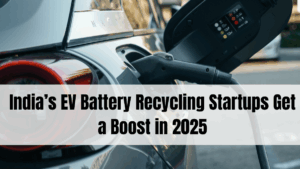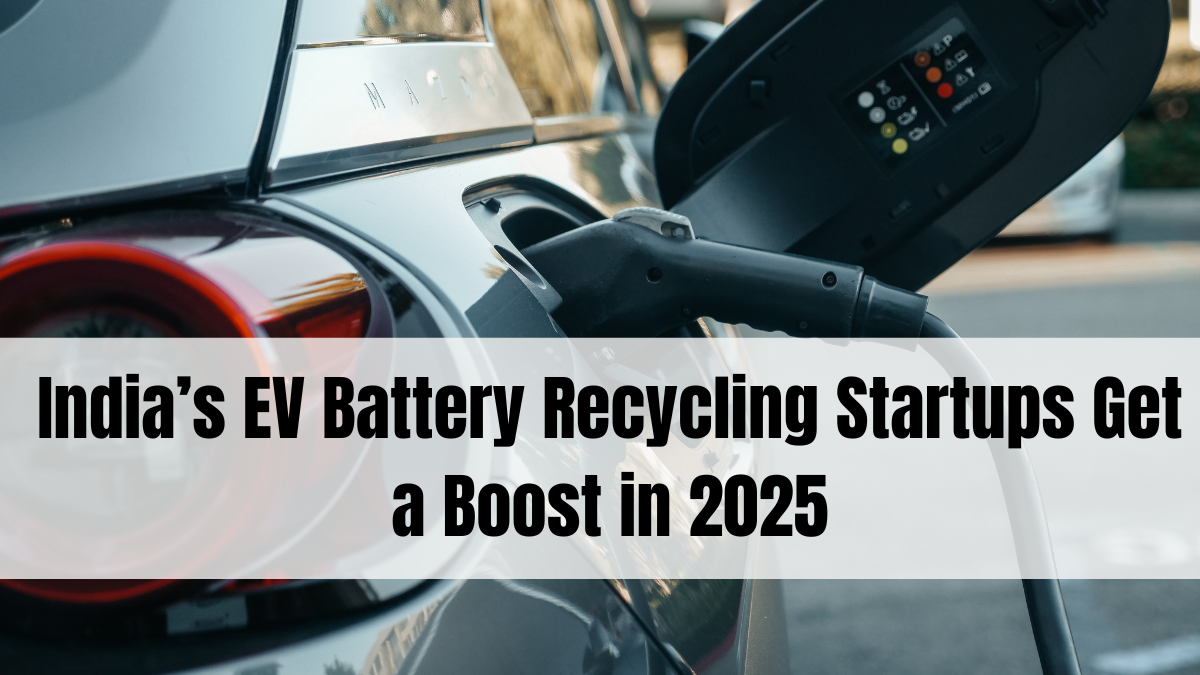With electric vehicles (EVs) becoming a key part of India’s clean mobility vision, the issue of managing used and end-of-life batteries has taken center stage. The surge of EV adoption is paralleled by a growing need for sustainable disposal and recycling — creating a vital opportunity for EV battery recycling India 2025 startups that are innovating to turn waste into valuable resources.
This article explores how Indian startups are leading the charge in battery recycling technologies, policy support, and circular economy models.

Why Battery Recycling Is Critical for India’s EV Growth
EV batteries contain valuable materials like lithium, cobalt, and nickel, which are finite and costly to mine. Without proper recycling:
-
Hazardous chemicals can leak, causing environmental harm.
-
Valuable metals are lost, increasing reliance on imports.
-
Disposal issues grow as battery volumes rise.
Efficient battery recycling ensures resource recovery, reduces pollution, and supports India’s sustainable development goals.
Emerging Indian Startups Revolutionizing Battery Recycling
Several innovative companies are pioneering technologies and services in this sector:
-
Exigo Recycling: Offers advanced hydrometallurgical processes recovering metals with minimal environmental impact.
-
Attero Recycling: Focuses on battery collection, dismantling, and metal extraction using eco-friendly techniques.
-
Li-Cycle India: Partners internationally to set up state-of-the-art recycling plants with circular economy principles.
-
Gravita India: Converts scrap batteries into reusable raw materials and focuses on e-waste management.
-
Recykal: Provides digital platforms for battery lifecycle tracking and responsible recycling coordination.
These startups integrate technology and sustainability to close the EV battery loop effectively.
Government Policies Supporting EV Battery Recycling
India’s Ministry of Heavy Industries and Environment Ministry have introduced policies to facilitate battery recycling:
-
Battery Waste Management Rules: Mandate collection and processing of used EV batteries.
-
Incentives: Subsidies and grants for recycling plant setup and R&D.
-
Extended Producer Responsibility (EPR): Manufacturers must ensure end-of-life battery handling.
-
Research Collaboration: Funding partnerships between startups and academic institutions.
These initiatives aim to build a robust ecosystem supporting circularity and innovation.
Challenges Faced by Battery Recycling Startups
Despite progress, startups grapple with:
-
High capital investment for advanced recycling plants.
-
Complex logistics of collecting used batteries nationwide.
-
Technical challenges in efficiently extracting rare metals.
-
Market competition from imports of recycled materials.
-
Consumer awareness about battery disposal responsibilities.
Addressing these requires coordinated industry, government, and consumer action.
The Road Ahead: Scaling Up India’s Battery Recycling
As EV sales grow, battery recycling capacity must scale rapidly. Key future trends include:
-
Development of modular recycling plants suited for regional deployment.
-
Use of AI and robotics for safe dismantling and material separation.
-
Integration of second-life battery applications before recycling.
-
Strengthened international collaborations for technology transfer.
India’s startups are poised to become global leaders in this vital sustainability sector.
FAQs
Why is EV battery recycling important for India?
It recovers valuable materials, prevents environmental pollution, and supports sustainable EV adoption.
Which startups are leading EV battery recycling in India?
Exigo Recycling, Attero Recycling, Li-Cycle India, Gravita India, and Recykal are key players.
What government policies support battery recycling?
Battery Waste Management Rules, subsidies, EPR mandates, and R&D funding are key policies.
What challenges do battery recyclers face?
High costs, complex logistics, technical difficulties, and market competition are major challenges.
How can consumers contribute to battery recycling?
By responsibly disposing used EV batteries through authorized collection centers and raising awareness.
Click here to know more.
